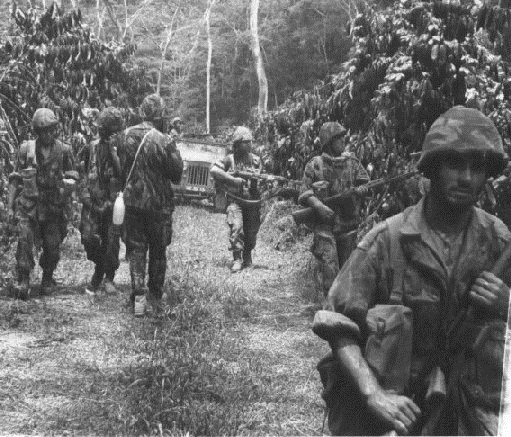Many of the Ovimbundu were
forced to take out labor contracts from 1961 to 1974 and become migrants
because of the increase in cost of living. About twenty-five percent of the
Ovimbundu able-bodied males were migrating on labor contracts to coffee
plantations for one to two years. Due to government wartime policies that took
place from 1969 to 1973 cost of living increased by seventy-nine percent.
 |
| http://en.wikipedia.org/wiki/ Angolan_War_of_Independence |
Another
issue during this time was that in certain regions of the highlands, officials
had made it easier for Ovimbundu land to be purchased by Europeans. At this
point in time the Ovimbundu even became paid labor for the Europeans on their
own land. After the UNITA (National Union for the Total Independence of Angola)
fought against the Portuguese from 1966 to 1974, the Angolan civil war took
place from 1975 to 2002.
During
the civil war the cities of Huambo and Kuito were almost completely destroyed.
Both of these cities were in the Ovimbundu region. This caused many of the
Ovimbundu to flee to other cities. Some of these cities were still in their own
area but some were also in very distant areas. After the civil war ended in
2002 many of the cities have been reconstructed or are being rebuilt. However, even
though many of the Ovimbundu have returned to their original land since the war
has ended, a lot still remain in the cities they fled to outside of their
homeland. This has caused a lot of the Ovimbundu to now be scattered all over
different parts of Angola.
No comments:
Post a Comment